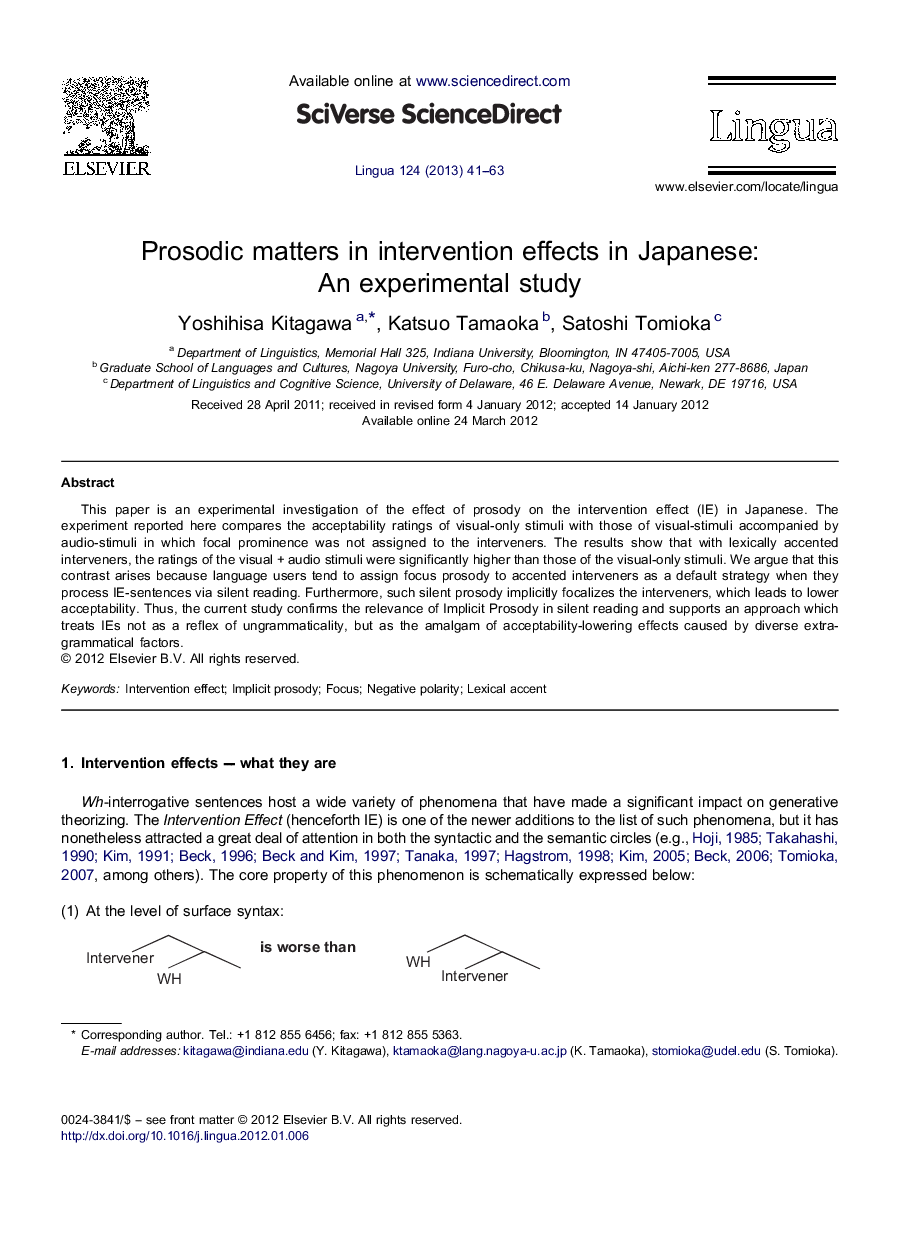| Article ID | Journal | Published Year | Pages | File Type |
|---|---|---|---|---|
| 935461 | Lingua | 2013 | 23 Pages |
This paper is an experimental investigation of the effect of prosody on the intervention effect (IE) in Japanese. The experiment reported here compares the acceptability ratings of visual-only stimuli with those of visual-stimuli accompanied by audio-stimuli in which focal prominence was not assigned to the interveners. The results show that with lexically accented interveners, the ratings of the visual + audio stimuli were significantly higher than those of the visual-only stimuli. We argue that this contrast arises because language users tend to assign focus prosody to accented interveners as a default strategy when they process IE-sentences via silent reading. Furthermore, such silent prosody implicitly focalizes the interveners, which leads to lower acceptability. Thus, the current study confirms the relevance of Implicit Prosody in silent reading and supports an approach which treats IEs not as a reflex of ungrammaticality, but as the amalgam of acceptability-lowering effects caused by diverse extragrammatical factors.
► Intervention effects in Japanese weaken with audio-stimuli added to visual-stimuli. ► NPI-interveners elicit stronger intervention effects than non-NPI interveners. ► The relevant notion of focus is not semantic but information-structural. ► The effects of audio-stimuli support the Implicit Prosody Hypothesis. ► The finding is consistent with the pragmatic analysis of intervention effects.
